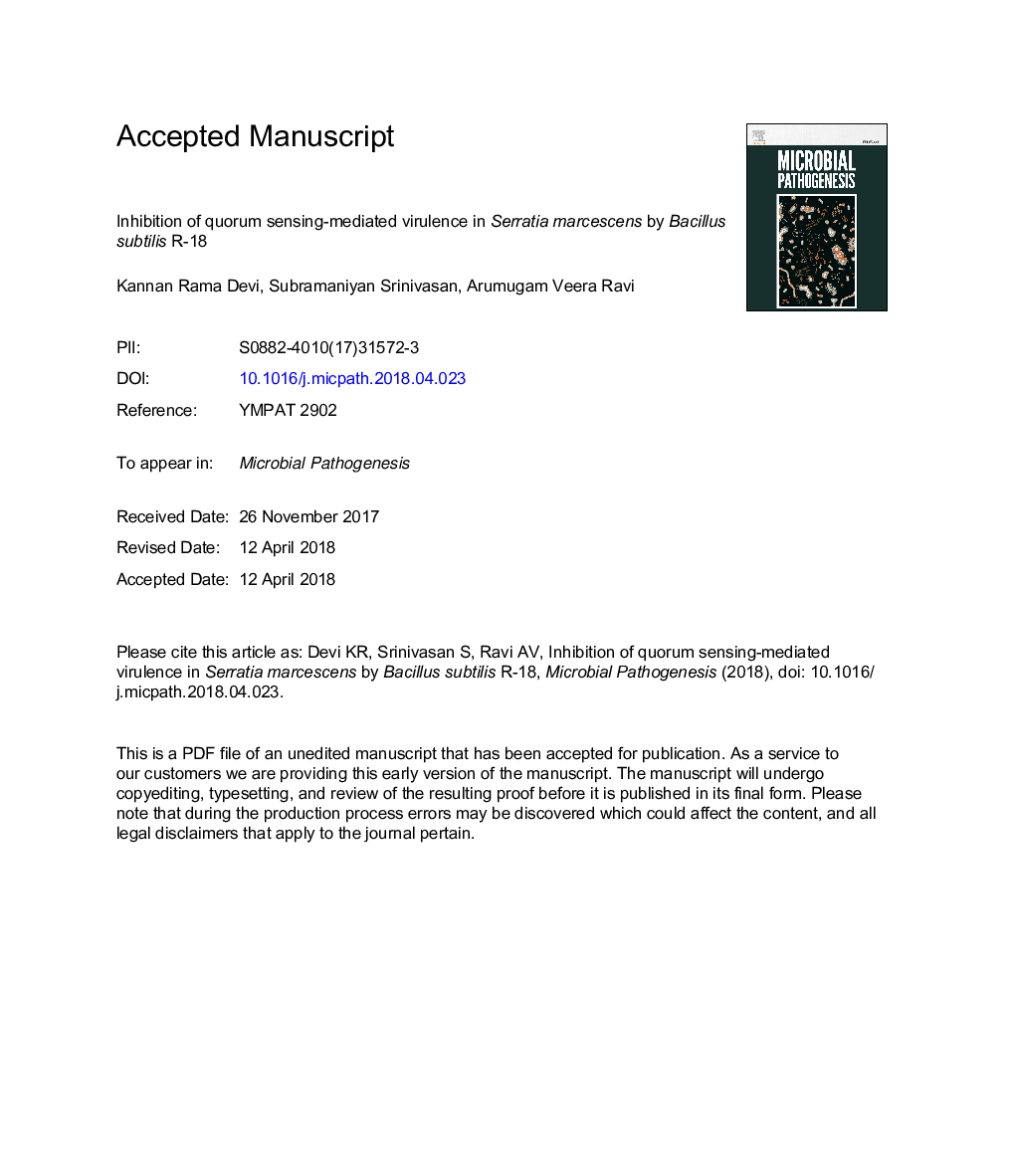| Article ID | Journal | Published Year | Pages | File Type |
|---|---|---|---|---|
| 8749442 | Microbial Pathogenesis | 2018 | 33 Pages |
Abstract
Serratia marcescens is an opportunistic human pathogen causing various nosocomial infections, most importantly urinary tract infections (UTIs). It exhibits increased resistance towards the conventional antibiotics. This study was aimed to evaluate the anti-virulence effect of a rhizosphere soil bacterium Bacillus subtilis strain R-18 against the uropathogen S. marcescens. First, the bacterial cell-free culture supernatant (CFCS) of B. subtilis strain R-18 was evaluated for its quorum sensing inhibitory (QSI) potential against biomarker strain Chromobacterium violaceum and the test pathogen S. marcescens. The B. subtilis R-18 CFCS effectively inhibited the quorum sensing (QS)-mediated violacein pigment production in C. violaceum and prodigiosin pigment production in S. marcescens. Furthermore, B. subtilis R-18 CFCS was successively extracted with different solvent systems. Of these solvents, B. subtilis R-18 petroleum ether (PE) extract showed inhibition in biofilm formation, protease, lipase, and hemolysin productions in S. marcescens. Fourier transform infrared spectroscopic (FT-IR) analysis revealed the alterations in the cellular components of bacterial cell pellets obtained from B. subtilis R-18â¯PE extract treated and untreated S. marcescens. The differential gene expression study further validated the downregulation of virulence-associated genes. Characterization of the active principle in B. subtilis R-18â¯PE extract by gas chromatography-mass spectrometry (GC-MS) analysis showed the presence of multiple compounds with therapeutic values, which could possibly reduce the QS-dependent phenotypes in S. marcescens.
Related Topics
Life Sciences
Immunology and Microbiology
Microbiology
Authors
Kannan Rama Devi, Subramaniyan Srinivasan, Arumugam Veera Ravi,
